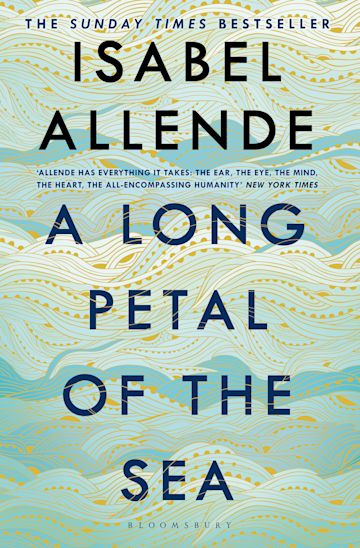
This, of course, is closely linked to the author’s own story, President Allende having been her father’s cousin. They seem to be thriving, until the military coup in 1973, when General Pinochet led the overthrow of the president Salvador Allende. Roser, meanwhile, develops her own career she was a pianist in Spain (she was rescued by Victor’s parents who spotted her talent and rescued her from a life of poverty) and begins teaching music. They therefore set about making a decent life for themselves: they set up a business, a small bar, Victor completes his studies and qualifies as a doctor, eventually becoming one of the leading cardiac surgeons in the country (a fact which will later save his own life). Although theirs is a marriage of convenience, Victor and Roser grow fond of one another and whilst, initially, they intend to return to Spain one day, it becomes clear, as the years pass, and world war two rages in Europe, that this is unlikely to happen. The couple settle in Chile and Roser gives birth to a son, Marcel, whom Victor cares for as if he were his own child. Victor persuades Roser to marry him, believing it will be safest for them both and give them the best chance of being accepted into Chile. She says she is too old for the journey and wishes to die in her country. Victor and Roser are forced to leave behind Victor’s elderly mother, Carme Dalmau. Guillem was a fighter, a passionate revolutionary, and lost his life to the cause. Victor Dalmau is one of these refugees, a young medic who escapes the country with his heavily pregnant sister-in-law Roser, a pianist who was engaged to be married to Victor’s brother Guillem. It concerns refugees from the Spanish Civil War who escape the fascist regime in September 1939 and flee to Chile via France on a ship called the Winnipeg, in an operation organised by the legendary Chilean poet Pablo Neruda, who felt his nation had a duty to support those fleeing the terror in Spain. Only 6 months ago, and yet it feels like a lifetime.Ī Long Petal of the Sea is Isabel Allende’s twentieth novel and, as with many of her works, is based on the true story of a close friend of hers. Isabel Allende probably would not even have embarked on an international promotional tour.


A few weeks later and it would have been cancelled.

Nobody was wearing a face mask nor using hand sanitiser and the Coronavirus seemed like a thing that was happening far away and not at all like a real threat. The excited spectators queued on the stairs, we sat next to strangers and laughed out loud, a microphone was passed around the audience. The evenings were still dark and the weather was cold. I saw Isabel Allende in conversation with Jeanette Winterson at The Dancehouse in Manchester as part of the Manchester Literature Festival.
-260x400.jpg)
My last live cultural experience before lockdown was introduced in the UK was on February 11th.


 0 kommentar(er)
0 kommentar(er)
